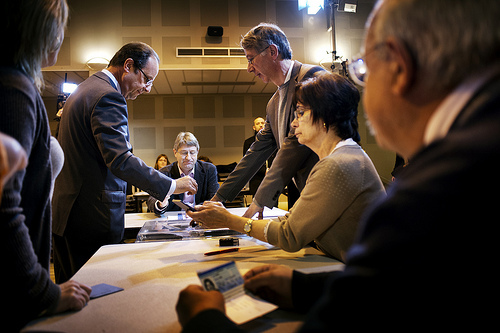In addition to two statewide measures on the ballot in California on Election Day, several states and cities also addressed obesity, experimental drug treatments for the terminally ill, and limited provider insurance networks at the ballot box on November 4.
Berkley, San Francisco: Soda Taxes
Voters in Berkeley, California approved Measure D, to levy a penny-per-ounce tax on most sugar-sweetened beverages, with the proceeds going to the city’s general fund. San Francisco voters rejected a similar measure the same day.
Proponents argued the higher taxes will reduce sugar consumption and its effects on health, including obesity and diabetes, but critics noted there is no apparent correlation between taxes on sugar and lower obesity rates. Opponents also argued the tax will drive up consumer costs and hit the poor the hardest.
Arizona: Right to Try
Arizona voters passed Proposition 303, often called a ‘Right to Try’ measure, that could allow certain investigational drugs, biological products, and devices to be made available to terminally ill patients.
Under current law, patients seeking to use experimental drugs before FDA approval must go through an exemption process that can take several months, requiring physicians to file paperwork that requires almost 100 hours to complete. Even after this lengthy process, the decision to grant an exemption lies solely with the FDA.
Arizona’s Right to Try law would theoretically allow some patients to obtain experimental drugs without getting federal approval. It allows access only to medications that have passed basic safety testing, and access is limited to use by terminally ill patients who have exhausted other available treatments.
A patient’s request for access to an experimental drug would require a doctor to diagnose a terminal disease and declare the drug represents the patient’s best chance at survival, with the patient providing informed consent, limiting the legal exposure of the manufacturer of the drug.
“There is nothing worse than watching a loved one pass away before your eyes,” said Victor Riches, vice president of external affairs at the Goldwater Institute. “Right to Try gives terminal patients the ability to do everything in their power to try and save their own lives.”
Despite voter approval of Proposition 303, it is unlikely to provide any relief for terminally ill patients because it conflicts with federal law, and drugmakers are unlikely to cooperate without federal approval.
South Dakota: Willing Provider Law
In South Dakota, voters approved an ‘any willing provider’ ballot initiative, Initiated Measure 17. It was proposed to address the problem of health insurers limiting patient access to health care by requiring consumers to receive care from in-network providers or not receive full coverage.
Initiated Measure 17 requires insurance companies to allow patients to choose a doctor and receive full insurance coverage even if the doctor is outside a particular insurance network. IM 17 requires health insurers to include “all willing and qualified providers” on their provider list. Doctors would still have the choice of whether to join the insurer’s network at the offered reimbursement rate.
Matthew Glans ([email protected]) is a senior policy analyst at The Heartland Institute.





